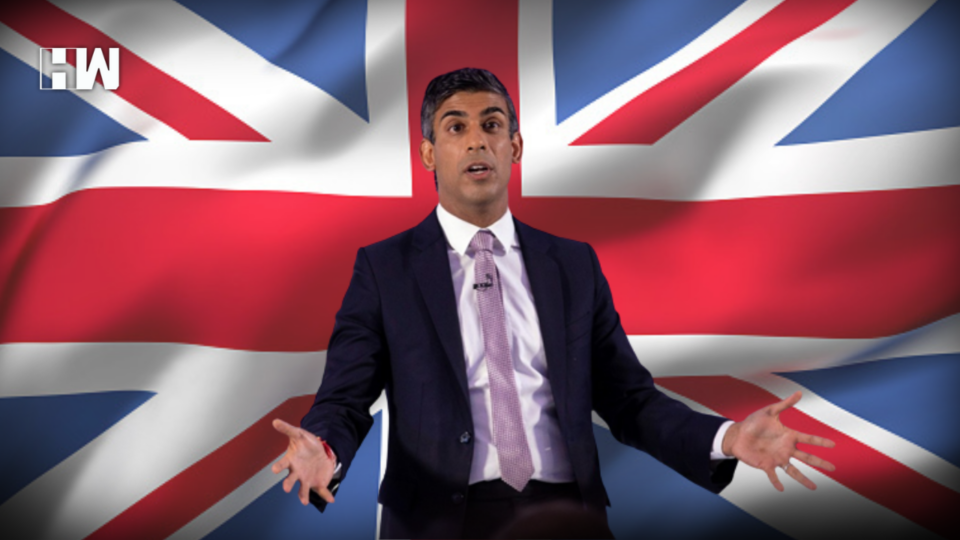The possibility of switching seats has emerged as a major topic of conversation, as an unusually high number of Tory MPs are anticipated to resign in Rishi Sunak Led Government
London: In preparation for significant defeats for Prime Minister Rishi Sunak’s party at the upcoming UK general election, several Conservative parliamentarians are plotting to turn against their constituents in order to secure safer seats.
Conservative Members of Parliament have recently let their local organizations and party headquarters know if they plan to run again in the upcoming election, which is scheduled to take place before January 2025. According to MPs and officials familiar with those conversations, the possibility of switching seats has emerged as a major talking point, far more so than in previous years, given the unusually high number of Tory MPs projected to resign.
Another reason, and occasionally a justification, for some MPs to switch places is the routine process of boundary revisions that will take effect at the following election. This time, the adjustments are harsh for certain Conservatives, and combined with the terrible poll numbers, even some formerly safe seats are now in jeopardy.
Since the beginning of British politics, individual MPs’ efforts to keep their jobs have been controversial. This is especially true when lawmakers begin to believe that a government is nearing its end.
This week, the attitude of Tory MPs in vulnerable areas suggests little hope that Sunak would be able to improve the party’s dismal poll numbers in the upcoming two years. The tactic became known as the “chicken run” toward the end of John Major’s tenure in the 1990s when Tony Blair’s Labour opposition referred to the Conservative MPs vying for safer seats as “chickens.”
MPs who seek to switch seats frequently claim that doing so is necessary due to boundary adjustments—regular modifications made to constituency borders as a result of demographic and population changes. However, detractors view the chicken run as the height of a careerist politician’s panic action.
According to this reasoning, politicians wave farewell to the electorate they were chosen to represent and depart for a location that is more politically advantageous in order to preserve their own skins. Mims Davies, a Tory minister, already abandoned her seat in Eastleigh, Hampshire—typically a Liberal Democrat stronghold—for affluent Mid Sussex, which has been a Conservative stronghold from its formation, ahead of the 2019 election.
One of the more interesting beltway tales that political anoraks obsess over is the competitive and opaque nature of the process as MPs consider their futures and jockey for position. MPs frequently tell their supporters they plan to run again only to decide against it later.
According to the Boundary Commission’s current recommendations, 59 current parliamentary seats would move by 40% or more, which would result in many seats having a considerably different appearance than they did in 2019, when the Tories won their largest majority in a generation.
Gavin Williamson, a former minister who quit during the first few weeks of Rishi Sunak’s administration and whose South Staffordshire seat is combining with South Dudley, is among the worst-affected MPs. The Wyre and Preston North constituency of Defense Secretary Ben Wallace is also in danger.
According to those aware with the negotiations, a competition is underway among Tory MPs to run for the Bishop Auckland seat being vacated by incumbent Dehenna Davison, a 29-year-old who has chosen to leave parliament.
Also, Read: Pakistan: 100 Christians Faced Faith Conversion, Child marriage In Last Three Years
Even though polls indicate that large portions of working class voters in the north will switch to Labour, the seat in northeast England is viewed as having a relatively decent chance of going Republican. In order to concentrate more prospective Tory votes on the table, the Boundary Commission is recommending the dissolution of the nearby North West Durham seat currently held by another Tory MP, Richard Holden.
The Weald of Kent constituency, which should have a sizable Tory voting base, is the subject of a heated struggle amongst Tory MPs at the other end of the country. According to party statistics, Greg Clark, whose neighbouring Tunbridge Wells has been intensively targeted by the Liberal Democrats because of its sizable population of Remain voters, is one of the contenders. In response to a question from Bloomberg, Clark said he was content in Tunbridge Wells.
Due to Adam Afriyie’s decision to leave parliament, Windsor’s premier seat, which is home to the Royal Family and has a Tory majority of 20,000, is now vacant. Ben Spencer, according to Tory MPs, might move from Surrey’s Runnymede and Weybridge. An email requesting comment from Spencer received no response.
Embattled There is also pressure on Dominic Raab, the deputy prime minister, who is the subject of a probe into a bullying claim that he vigorously refutes. The Liberal Democrats are devoting efforts to winning the seat because they think new boundary modifications will increase their chances of doing so. As a result, Tory MPs have begun to think that Raab would move to Runnymede. Raab’s spokesman denied that he was giving it any thought.
For the Conservatives, boundary revisions in southeast London may force Bob Neill of Bromley and Bob Stewart of Beckenham to make judgments about their futures.
According to a senior Tory, the party would need to rent a fleet of helicopters to transport its MPs throughout the nation as they look for new constituencies. Another, though, was less lighthearted, stating that with the polls how they are, there would be absolutely no safe seats remaining at the next election.
As an independent media platform, we do not take advertisements from governments and corporate houses. It is you, our readers, who have supported us on our journey to do honest and unbiased journalism. Please contribute, so that we can continue to do the same in future.

